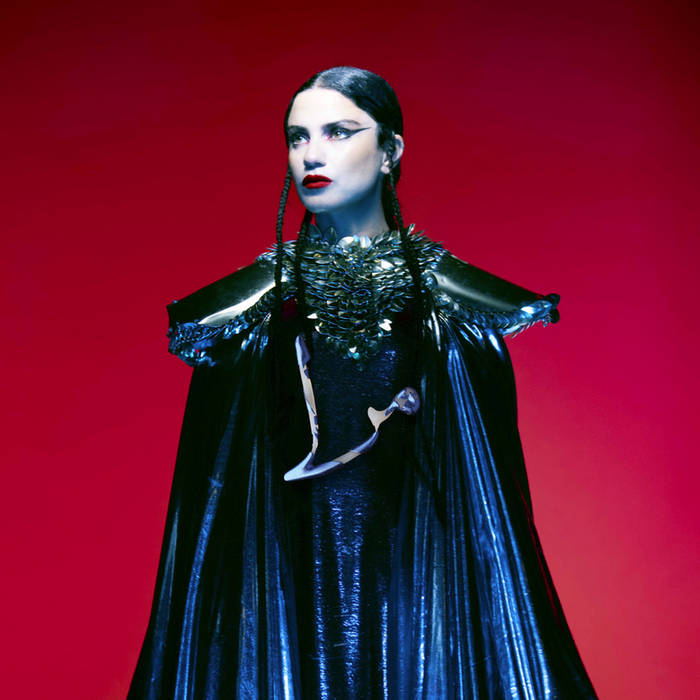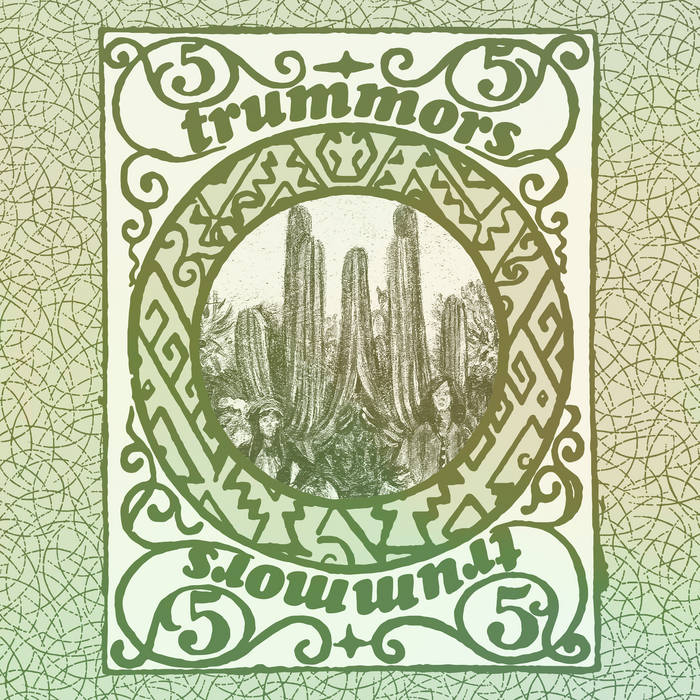
Brainstory "Sounds Good"
Big Crown Records is proud to present Brainstory’s sophomore full-length album Sounds Good.
Based in L.A. but hailing from the Inland Empire’s own Rialto, California, two-thirds of Brainstory, Kevin and Tony Martin are brothers by blood, while Eric Hagstrom is a brother through their music and long term friendship. Since they started the band they have constantly faced situations that forced them to rise to the occasion. They got signed to Big Crown Records, they stepped up their game. COVID happened, they learned to record themselves. They started touring a ton sharing the stage with the likes of Lady Wray and they got their live show super tight. All of this time spent grinding and growing has certainly paid off. The path to take their art to the next level is clearer than ever, and once again, they are here for it. If there is one thing that is abundantly clear on Sounds Good, it’s that Brainstory has leveled up.
Part of this evolution is undoubtedly attributed to having access to and working constantly in their own studio in Long Beach. Another major factor is that their brotherhood has expanded. “I’ve been playing music with my brother all my life and now with Eric for a long time,” Tony tells us. “Leon, though, is like another brother I’ve just met.”
Leon Michels, Big Crown’s co-owner, produced this record and applied his unmistakable golden touch in crucial ways. The other member of the extended Brainstory brotherhood whose contributions were essential to the album, is studio engineer legend Jens Jungkurth who controls the tones and textures of the music. “That’s what you’re hearing, our connection, the fun moments, the little details,” Kevin describes. “This record isn’t half what it is without them—and it made us want to match that effort,” and match that effort they did.
Album opener “Nobody But You” is an uplifting, dance floor burner, that shows off a new side of Brainstory’s range. Drummer Eric Hagstrom’s crushing back beat lays the foundation for an inspirational feel good banger that manages to take the uncomfortable truth that “nobody will save you but you” and turn it into pure blissful motivation. “Peach Optimo” is a laid back half time tune that blends the bounce of Down South Hip-Hop with California G funk and Jazz. They once again show off their B said ballad talents with “Gift Of Life” but this time taking the genre to a new place with lyrics about existentialism and a track that is drop dead gorgeous, haunting, and profound all at once. “NyNy” is an homage to Kev and Tony’s recently deceased grandfather while “Too Yung” is a show stopping, deeply personal, stripped down number about being introduced to alcohol at a young age. They put another hit on the boards with “Hanging On,” a Latin / Psychedelic Soul inspired banger featuring Claire Cottrill on background vocals while “XFaded” addresses the all too common vicious cycle of smoking and drinking too much over a trippy shuffle.
“It’s been four years since our last full length record, and with everything that’s happened since, it’s like we’ve been catching up to ourselves.” That’s one way to describe change: catching up to oneself. Each member of Brainstory has gone through shifts, both personally and musically, and all of that threads through Sounds Good. It’s easy to say that the music industry can be short on lasting, genuine relationships. However, for Brainstory, from day one it’s been about standing by each other, for each other. Their friendship started the group, and now, this expanded brotherhood is supporting them to push it further. The stars have aligned for them to take a big and well deserved step with this new album and it couldn’t have happened to a better group of guys. Ups and downs of course, but they are acutely aware of how good the big picture has been for them and you can hear it in their music—music that just Sounds Good.

Emel "MRA"
Tunisian- American singer-songwriter, musician and artist, Emel Mathlouthi, also known as EMEL, will is back with her 4th Studio album, MRA, out now.
“A beautiful 100% Feminine/female odyssey, an ode to women, sisterhood and humanity”

Trummors "5"
The trouble with so much Cosmic American Music is that it’s not all that ‘cosmic’ at all. The moves are there—the mood, the ingredients, musical and (ahem) otherwise, the clothes—but the substance too often comes up a little thin. Maybe that’s fine: the Flamin’ Groovies weren’t quite the Beatles either, and so to criticize the heirs of the Flying Burrito Brothers for failing to equal their forebears’ sense of stoned celestial wonder feels a little mingy, like criticizing tomorrow for not being 1972. Enter David Lerner and Anne Cunningham’s duo Trummors, though, with their fifth and possibly best album—“possibly” only because the others, too, are so damn good—to blow this frequent quibble clean out of the water. 5 (yeah, they went ahead and made their Numerical Album, just like J.J. Cale once did) is so fresh, so sparkling, and so lovely, whatever debts it owes to anybody else are immediately canceled. This may be music with an abundant sense of history, a deep, almost Talmudic knowledge of a thousand country rock records, but it steps outside the shadow of that knowledge with a confidence that feels rare indeed.
Some of that is in the writing. A song like “Hey Babe” might seem a wisp of a thing, until you listen twice and clock lyrics as fatalistic, and as beautifully compressed, as a Robert Creeley poem, coupled with a melody that feels like it’s lived inside you forever. Some of that is in the performances, the way Lerner and Cunningham’s vocals fit together just so, as ideally paired as George and Tammy’s as they float atop accompaniments from their supporting players—Dan Horne’s spacious pedal steel on “Yellow Spanish Roses,” say, or C.J. Burnett’s spare, not-quite-barroom-feeling piano on “The Jalisco Kid”—that somehow manage to be at once understated and arresting. Some of it might be the occasional ways they make subtle adjustments to genre conventions (“Cosmic Monster” sounds closer to English psych monsters Dantalian’s Chariot than it does to canyon country, thanks to Clay Finch’s electric sitar) without sounding schizoid or breaking faith with the record’s overriding mood and identity. But none of that really accounts for 5’s startling and unshakeable immediacy, its ability to cut through the fog in one’s head and one’s mood every time it comes pouring out of the speakers.
Lerner and Cunningham lived with these songs a long while, writing them before the Pandemic struck in 2020, demoing them at home repeatedly before finally deciding to get together with Horne—an alumnus of previous records, too, as a player—in the producer’s chair for the first time. They tracked the record in LA over the span of about a week, did a bit of overdubbing later in Taos, and thus, after that long period of uncertainty, 5 arrived at its final form fairly quickly. Maybe it’s this paradox, this meeting of speed and deliberation, that gets at the record’s most striking quality, how these songs feel at once heavy and light, ancient and new, like something carved into stone with a feather. It’s a quality that fills me with admiration. Indeed, with something close to awe.

NappyHIGH "Burgundy"
NappyHIGH, a renowned producer from California, is set to unveil his latest album “Burgundy,” featuring luminaries like Chuck Inglish, Blu, and Mick Jenkins. His impressive portfolio includes collaborations with hip-hop titans such as Westside Gunn, Raekwon, and Mick Jenkins. NappyHIGH has a history of shaping the soundscape of modern hip-hop, demonstrated through his major studio albums and the acclaimed “color” series. His track record of working with a broad spectrum of artists, from Conway The Machine to Curren$y, underscores his influential role in the industry.